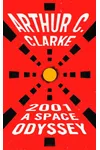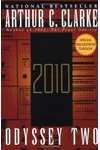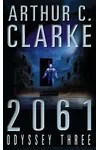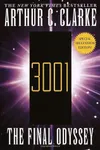Step into the cosmic wonder of the Space Odyssey series, where humanity’s destiny collides with the mysteries of the universe! Penned by the legendary Arthur C. Clarke, this science fiction saga spans four novels, blending hard science with profound philosophical questions. From the iconic 2001: A Space Odyssey to its lesser-known sequels, the series invites readers to ponder our place among the stars.
With its gripping narrative and visionary ideas, Space Odyssey has captivated readers since its debut in 1968. Whether you’re a sci-fi enthusiast or a curious explorer, this series offers a thrilling journey through space, time, and the human spirit. Let’s dive into its origins, stories, and enduring legacy!
How Space Odyssey Began
Arthur C. Clarke, a titan of science fiction, birthed the Space Odyssey series alongside Stanley Kubrick’s groundbreaking film. Inspired by Clarke’s short story The Sentinel, the duo co-developed 2001: A Space Odyssey, with the novel and film released in 1968. Clarke’s fascination with space exploration and humanity’s evolution fueled the series, which grew into a quartet of novels over three decades. His meticulous research and optimistic vision set the stage for a saga that feels as scientific as it is speculative.
The Heart of Space Odyssey
The series kicks off with 2001: A Space Odyssey, where a mysterious monolith sparks humanity’s leap from prehistoric apes to spacefaring explorers. Dr. David Bowman’s encounter with an alien intelligence near Jupiter raises questions about consciousness and cosmic purpose. The sequel, 2010: Odyssey Two (1982), follows a mission to recover Bowman’s lost ship, blending Cold War tensions with extraterrestrial intrigue. 2061: Odyssey Three (1987) explores a comet expedition, while 3001: The Final Odyssey (1997) wraps up the saga with a far-future glimpse of humanity’s fate.
Clarke’s themes weave through each book: the awe of scientific discovery, the ethics of technology, and the search for meaning in a vast universe. His prose is crisp yet evocative, grounding futuristic concepts in plausible science. Set across millennia, from Earth’s dawn to distant stars, the series paints space as both a frontier and a mirror for human potential. Fans cherish its blend of intellectual depth and narrative suspense.
Why Space Odyssey Resonates
Space Odyssey redefined science fiction by merging rigorous science with existential inquiry. Its influence ripples through films, books, and even real-world space exploration—NASA engineers have cited Clarke’s work as inspiration. The series’ bold ideas about artificial intelligence, alien life, and human evolution remain strikingly relevant, sparking discussions among readers and scholars alike. Its optimistic view of humanity’s potential continues to inspire dreamers and doers in the 21st century.
- Publication Years: 1968–1997
- Number of Books: 4
- Notable Recognition: 2001 inspired an Oscar-winning film
- Author: Arthur C. Clarke, co-creator of the 2001 film with Stanley Kubrick
About Space Odyssey
Ready to explore the cosmos? Grab 2001: A Space Odyssey and blast off into Clarke’s mesmerizing sci-fi universe! Whether you’re chasing monoliths or pondering life’s big questions, this series is a stellar adventure you won’t forget.



